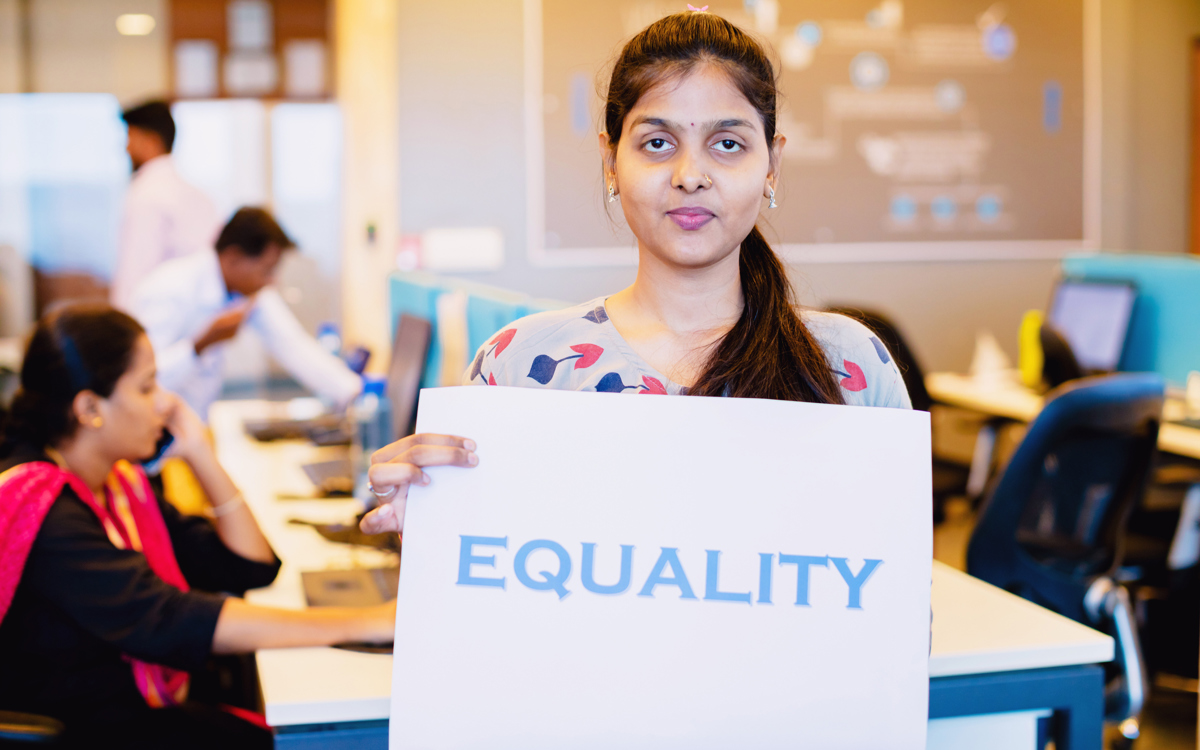By Mojibur Rahman

Globally, it is estimated that 1 in 3 women worldwide have experienced physical and/or sexual intimate partner violence or non-partner sexual violence. Mojibur Rahman, an associate professor at the University of Dhaka, Bangladesh, believes that the failure to talk about sexual harassment openly harbours ignorance towards a severe and pervasive issue that affects too many students each year.
In a bid to help combat sexual-based violence on campus, Mojibur applied for a Martha Farrell Fellowship through which he received training from the Martha Farrell Foundation. This organisation supports practical interventions to achieve a gender-just society and promote life-long learning through training and development programmes. Mojibur's training consisted of a week-long programme in Delhi and a series of online sessions on sexual harassment at the workplace.
Too often, talking about sexual harassment is seen as a social taboo. After identifying a lack of understanding at the heart of this, Mojibur spearheaded a campaign to build awareness of sexual harassment on campus.
To make the rarely spoken about and hidden topic visible, his drive to promote knowledge and awareness saw the circulation of online and offline educational resources. Handouts and leaflets containing definitions, categories, and advice for sexual harassment incidents were made accessible, and posters, banners, and stickers were strategically placed on noticeboards in popular areas such as the canteen, library, and common room. Making the issue physically visible encouraged students and faculty to engage in conversations about the topic.
Beyond circulating resources, Mojibur's awareness-building campaign included:
- Online engagement: The Institute of Education and Research (IER) Facebook group has more than 2,000 members, including present and ex-students, teachers, and staff of IER. Awareness has been raised in the group through posts, photos, and open discussion about the issue.
- Essay competition: An essay competition for the students on the topic of 'Role of Students in the Prevention of Sexual Harassment in Campus' has been arranged to gather students' thoughts on sexual harassment on campus and their perception of the problem solution.
- Poster presentation: Poster presentation sessions have been conducted with students and teachers on sexual harassment in the workplace to raise awareness about the issue.
- Discussion sessions: Group discussion among the students about sexual harassment on their campus has been conducted and moderated to raise awareness and understand the depth of the problem faced in IER premises and among the stakeholders.
- Individual interviews: Initial interviews of randomly selected students of IER have been taken to understand their perspectives on sexual harassment and how they perceive the issue in their campus and build awareness among them to stand up against the problem.
Mojibur cites that the biggest indicator of the impact and success of these approaches was the student and faculty response. While this issue was not previously discussed openly, now there is more discussion about sexual harassment on both online and offline platforms. This saw an increase in the number of reported sexual harassment complaints and an improved university response. Mojibur also developed a draft anti-harassment policy after completing his training. He hopes that university stakeholders will adopt these policies to develop further awareness programs for all.
'Before my fellowship work, nobody talked about this heinous act openly. Now every stakeholder in the Institute of Education and Research, University of Dhaka, has been concerned about this matter. After the awareness campaign, they know the types and nature of sexual harassment and what they have to do if they face any incidents.'
Mojibur's advice for other universities looking to combat sexual harassment on campus is to adopt a zero-tolerance approach.
'Combating sexual harassment is a comprehensive approach. A committee – free from gender bias - should be established, and students should be aware of their activities from their first day on campus. Both online and offline awareness programmes should be rolled out to students as part of their orientation.'
He also recommends that anti-sexual harassment policies should be both in English and native languages, and a centre for counselling and psychotherapy should be established. Pulling in different student associations – from student or volunteer organisation - should play an important role in disseminating awareness among all university stakeholders.
The Martha Farrell Memorial Fellowship helps drive systemic change– both on campus and beyond. To date, fellows from ACU member universities across East Africa and Asia have benefited from the Martha Farrell Foundation’s expertise, receiving specialist training and support to combat sexual harassment and in turn boost equity and equality.
Working in partnership with the Martha Farrell Foundation highlights our commitment to advancing gender equity across the Commonwealth.

